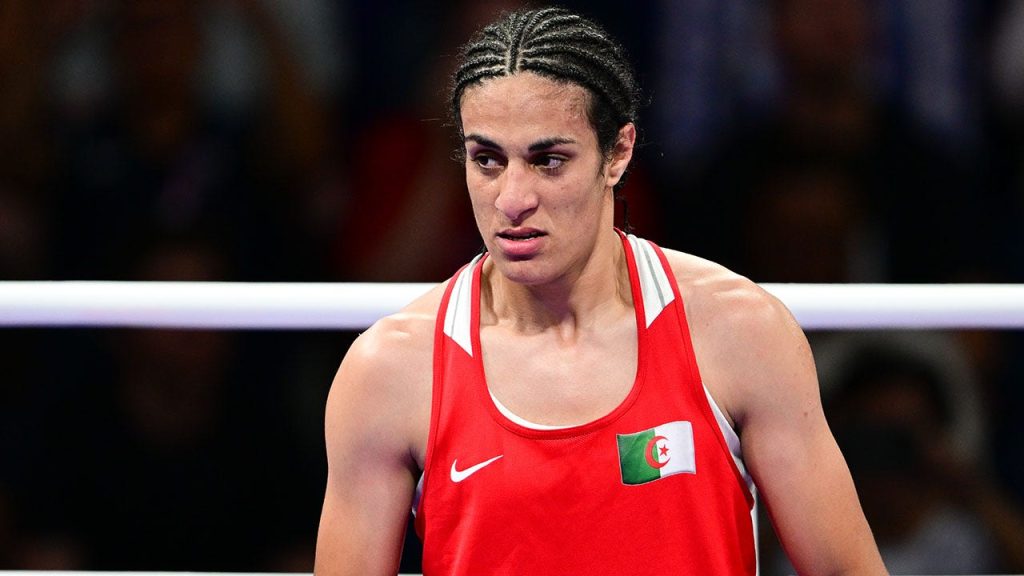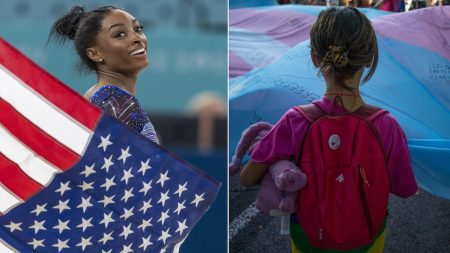The inclusion of Imane Khelif, an Algerian boxer, in the women’s boxing competition at the 2024 Paris Olympics sparked intense debate and controversy, culminating in her surprising third-place finish in the Associated Press Female Athlete of the Year voting. Khelif’s participation was contentious due to a failed gender test prior to the Games, raising questions about fairness and eligibility within women’s sports. Despite the controversy, the International Olympic Committee (IOC) upheld her eligibility, allowing her to compete and ultimately win the gold medal. This decision ignited a firestorm of criticism, particularly from advocates for women’s sports, who argued that Khelif’s biological advantage compromised the integrity of the competition. Tennis legend Martina Navratilova, a vocal proponent of protecting women’s sports, expressed her disbelief and outrage at Khelif’s inclusion in the Athlete of the Year voting with a succinct but potent “Wtaf???” on social media.
Khelif’s journey to the Olympics was marred by questions surrounding her gender. She had previously been disqualified from the 2023 championships before a gold medal bout due to gender eligibility issues. The International Boxing Association president, Umar Kremlev, revealed that Khelif possessed “XY chromosomes,” typically associated with biological males. This revelation further fueled the debate surrounding her participation in the women’s category. The controversy escalated during the Olympics when Angela Carini, an opponent of Khelif, forfeited their bout, citing concerns about the physical disparity and the potential for serious injury. Carini’s decision highlighted the safety concerns raised by some athletes competing against individuals with perceived biological advantages.
Adding to the complexity of the situation, Khelif was not the only boxer facing scrutiny over gender eligibility. Taiwan’s Lin Yu-ting, who also won gold in a different women’s weight class, had previously been disqualified for failing gender tests. The IOC’s decision to allow both Khelif and Yu-ting to compete drew widespread condemnation from athletes, coaches, and commentators who argued that their inclusion undermined the principles of fair play and threatened the future of women’s sports. The IOC defended its decision by stating that both athletes met the established eligibility criteria, but this explanation failed to quell the growing dissent.
The controversy surrounding Khelif’s participation in the Olympics and her subsequent recognition in the Athlete of the Year voting reignited the broader discussion on transgender athletes in sports. The debate centers on balancing inclusivity with fairness and preserving the integrity of women’s sports. Critics argue that allowing transgender women to compete in women’s categories creates an unfair playing field due to potential physiological advantages. Proponents of inclusion emphasize the importance of recognizing gender identity and providing opportunities for all athletes to participate. The Khelif case underscored the complexities and nuances of this debate, highlighting the need for clear and consistent policies that address both fairness and inclusion.
The fact that Khelif finished third in the Athlete of the Year voting, garnering four votes, further amplified the controversy. Caitlin Clark, a standout basketball player, won the award, and Simone Biles, a decorated gymnast, secured second place. Khelif’s inclusion in the voting, despite the ongoing debate about her eligibility, sparked outrage and disbelief among many, including Navratilova. Critics questioned the decision to recognize an athlete whose participation in the women’s category was so heavily contested. The voting results seemed to underscore the divide within the sporting world regarding transgender athletes and the criteria for recognizing athletic achievement.
The Khelif controversy became a focal point of discussion throughout the year, making her the most Googled athlete of 2024. The widespread interest in her case reflects the public’s fascination and concern about the evolving landscape of sports and the challenges of navigating issues of gender identity, fairness, and inclusion. The debate surrounding Khelif’s participation in the Olympics and her subsequent recognition in the Athlete of the Year voting is likely to continue, prompting further discussion and potential policy changes within the sporting world. The Khelif case serves as a significant chapter in the ongoing evolution of sports and its grappling with complex societal issues.










